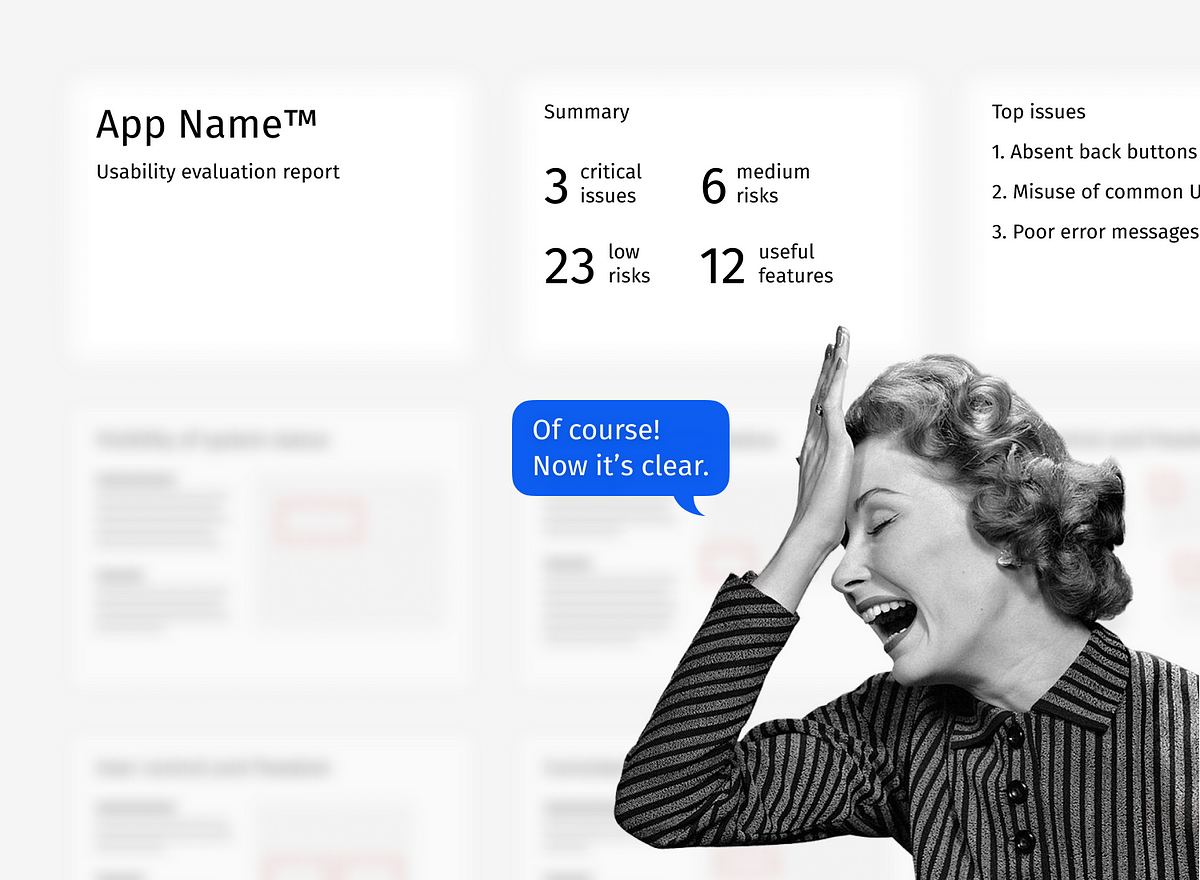What is the significance of User Experience (UX) research in the evaluation of software development companies? How does it impact the decision-making process? Is it a critical factor that should be given confirmatory emphasis or is it just an attractive addition to the existing attributes? These are thought-provoking questions that underscore the role of UX research in assessing the performance of software development firms.
Substantial research, such as that conducted by the Norman Nielsen Group, indicates a disconnect between the performance and monetary value of software development companies and the experience they deliver to users. This gap signifies that UX research is not being adequately utilized or given significant consideration in company evaluations. As stated by UserTesting, there is an escalating demand for software that aligns seamlessly with user expectations, reinforcing the urgency to bridge this disconnect in the United States.
In this article, you will learn about the significance of UX research in understanding the user’s needs and expectations from a software product, and how it shapes the perception and decisions of stakeholders in context to the company’s evaluation. The piece will further delve into the ways to integrate UX research effectively into the evaluation process.
The article will also address the challenges in implementing UX research and suggest potential solutions, drawing on expert insights and case studies. A concluding analysis will highlight foreseeable trends in UX research deployment in software development company evaluations, setting the direction for future discourse.

Understanding Key Definitions in UX Research and Software Development
UX Research refers to User Experience Research. It’s a process that helps in understanding user behaviors, needs, and motivations using observation techniques, task analysis, and other feedback methodologies. It’s essential for designing user-friendly applications or websites in software development.
Software Development is the process of creating computer programs or applications. It involves multiple stages, such as planning, designing, coding, testing, and maintenance.
Company Evaluations refer to the systematic process of examining the performance and effectiveness of a company. In this context, it involves examining how well a software development company uses UX research in their projects.
Unveiling the Significance: How UX Research Revolutionizes Evaluations in Software Development Companies
Understanding UX Research
UX Research involves systematic investigation of user needs to add context and insights into software process design. In a software development company, UX researchers uncover what the user needs from the software and delivers this information to developers, designers and stakeholders. This data-driven approach enables teams to create software that is user-centered, leading to improved end-user satisfaction, quicker adoption, and ultimately increased business revenues. Far from being an optional extra, UX research plays a vital role in shaping product direction, identifying use cases, understanding users’ behaviour and mitigating risks.
UX Research comes in many forms depending on its goals. It can be used to explore new markets, understand customer behaviour or test a prototype, among other things. One of its key benefits is its ability to extract qualitative and quantitative data from users.
- Qualitative data often gathered through interviews, observations and diary studies to understand wants, needs and motivations.
- Quantitative data gathered through surveys, analytics, and usage statistics to measure user behaviour.
Both of these data types provide valuable insights that software companies can use to improve software design and functionality.
UX Research Impact on Evaluations
When evaluating a software development company, understanding their UX Research capabilities is critical. A team that prioritizes UX Research acknowledges the importance of understanding and addressing the needs of the end-user. They strive to create software that not only functions effectively but also provides a satisfying and straightforward user experience.
Companies committed to robust UX Research can evidence this through their processes and end-product quality. In evaluations, they consistently outperform rivals who neglect this key step. Additionally, the way a company handles UX Research can also reveal a lot about their overall approach to software development, highlighting whether they prioritize user needs or simply follow industry trends.
In every evaluation, a superior software development company stands out by demonstrating its ability to understand and meet the user’s needs. As such, by conducting thorough UX Research, the company can stay ahead of the market by developing software that resonates with the target audience. The bottom line is that UX Research is not just an option; it’s a necessity for producing superior software and excelling in company evaluations.
Beyond Aesthetics: How UX Research Augments the Effectiveness and Efficiency of Evaluations in Software Development Firms
The Catalyst of Successful Software: UX Research
Why is it that some software applications are loved by their users, while others keep striving for client approval? The answer lies in the Sangfroid of investigating the user experience – UX Research. It’s an intrinsic part of measuring the efficiency of software and hence, critical in lending it a user-friendly outlook. This robust tool boxes in a comprehensive understanding of a user’s needs, expectations, and real-time interactions with a product. It is often the decisive factor between a user sticking around or bouncing off. With quantifiable results in usability testing and qualitative insights via interviews or surveys, it’s the cornerstone of a successful software deployment.
Stumbling Blocks in Incorporating UX Research
Despite its paramount significance, UX research often encounters various roadblocks on its path to implementation. Strikingly, some companies still fall into the trap of considering it a peripheral activity, or worse, an afterthought. This leads to below-par software that doesn’t resonate with the needs of the user. Also, some do not prioritize UX research owing to budget constraints or a lack of time, sidelining it in favor of development and deployment efforts. However, such an approach threatens the software with not just falling short of users’ expectations, but also potential failure after launch. Hence, turning a blind eye to UX research is equivalent to inviting avoidable challenges.
Acclaimed Practices in UX Research
Leading companies that ace the software game have always given their due diligence to UX research. Microsoft, for example, has a dedicated user research team that works closely with engineers, designers, and developers from a project’s inception to its launch. Meanwhile, Google uses a tool called HEART that aids in setting UX metrics based on Happiness, Engagement, Adoption, Retention, and Task Success. Moreover, Airbnb presents a commendable case where the founders initially spent ample time with their users. They visited hosts’ homes, photographed their properties, and used this personalized insight to create a platform that quickly rose to success stories. These are just a few examples that demonstrate how incorporating UX research can lead to unrivaled success in software development and beyond.
Charting the Future: The Indispensable Role of UX Research in Redefining Software Development Company Evaluations
A Bold Inquiry: Is There Effective Software Development Without UX Research?
Pondering on this searing question, the significance of User Experience (UX) Research starts to solidify. Its crucial role in a software development company’s evaluations lies in its capacity to introduce a user-centered perspective in the tech-driven world. This innovative field bridges the often-challenging gap between highly technical programming and the end-user’s experience. It’s the translation approach to what the tech jargon means for the common user. UX research doesn’t only quantify success based on the lack of bugs or well-executed coding but emphasizes the end-users’ journey, ensuring the software is intuitive and user-friendly—an essential barometer for success in the dynamic digital world.
Identifying the Bottleneck in Software Evaluations
Turning our attention to the primary issue, the common narrative revolves around the tendency to bypass UX research due to perceived high costs and time consumption. In a field where quick delivery is paramount, this misleading perception may instigate companies to evade the vital step of conducting thorough UX research. This entailing skewed evaluations, heavily biased towards the technical side and inadequately addressing the end-user experience. The resultant software, no matter how technically robust or lacking software bugs, remains at significant risk of being ineffective if it doesn’t resonate with the users. Remember, in the end, it’s the users who determine the software’s value and success, not its technical perfection.
Mapping Out Successful Models in UX Research
Looking into companies that have managed to successfully incorporate UX research in their evaluations, Spotify stands tall as an example. Even with a simple interface, the music giant owes its success to its constant investment in UX research. Spotify engages in regular user testing, ensuring that its interface remains user-friendly and intuitive. Another valuable example is Airbnb, where UX research has been instrumental in enhancing and redefining the booking experience. Airbnb’s investment in empathy maps, usability studies and A/B testing displays an exemplary commitment to understanding their users’ experiences. These successful implementations of UX research highlight the potential ROI of investing in comprehensive UX research, further quelling the misconceptions about its perceived hindrances.
Conclusion
In conclusion, one must ask, how will the incorporation of UX research influence the evaluation of software development companies? Undeniably, UX research plays a crucial role in optimizing the product development process, ensuring high user satisfaction and improving the overall customer experience. It is not merely about enhancing aesthetics but about understanding the user’s desires, requirements and pain points, thereby creating a versatile solution. Its significance cannot be overstated in the realm of software development. As a 360-degree approach, it grants an in-depth understanding for companies to analyze and improve their performance gradually.
To stay abreast with the transforming dynamics of software development and the rising importance of UX Research, I encourage you to remain an active follower of our blog. We consistently provide informational content on this matter, lending you diverse perspectives on the significance of UX research in the current software development landscape. So, by staying connected with us, you ensure you are always in the know with the latest trends and developments.
We always strive to bring engaging and vital innovations to our reader community, ensuring that they are ahead of the curve. Thus, you can look forward to our next releases, which will delve deeper into more specific aspects of UX research in software development and its monumental contribution in industry evaluations. Until then, keep updating your knowledge and keep growing!
F.A.Q.
FAQ Section
What is the role of UX research in software development companies?
UX research in software development companies plays the vital role of understanding user needs and behaviors. They gather and analyze data to inform the design process and to ensure that the end product meets the user’s requirements and expectations.
Why is UX research important in evaluating software development companies?
UX research is essential in evaluating software development companies because it demonstrates the company’s commitment to delivering a user-centric product. The presence of UX research also indicates a company’s holistic approach towards software development, which focuses not only on technical aspects, but also on user satisfaction.
How can UX research enhance the software development process?
UX research can greatly enhance the software development process by providing insights into user needs, which can inform the feature development and design decisions. Additionally, UX research can help identify potential issues or roadblocks early in the process, minimizing the risk of wasted resources and time.
What methods are used in UX research for software development?
Common methods used in UX research for software development include usability testing, user interviews, surveys, contextual inquiries, and ethnographic studies. These methods allow researchers to gain a deep understanding of the user’s needs and expectations and drive the design of the software.
Can a software development company function effectively without UX research?
While it’s possible to develop software without UX research, the process may not be as effective or efficient. Without UX research, you run the risk of creating a product that doesn’t meet user expectations, potentially leading to lower user satisfaction and decreased product success.


